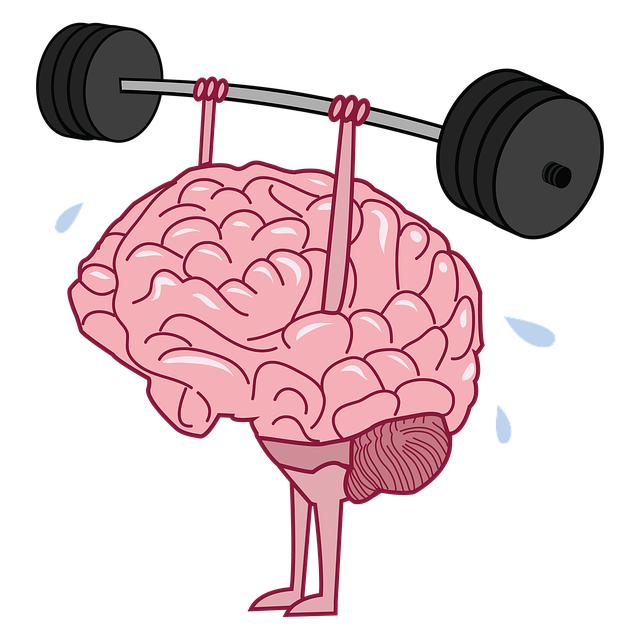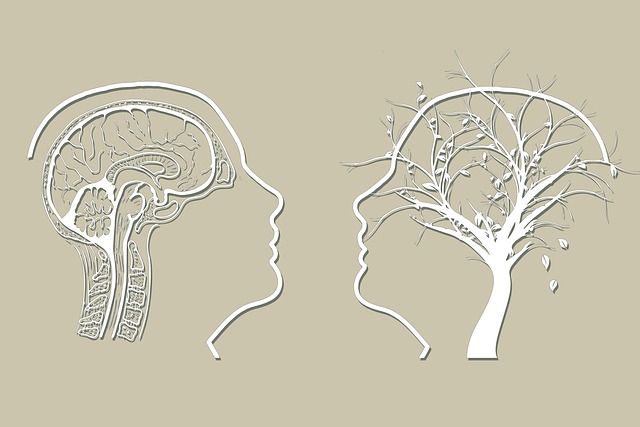Colorado Springs Cognitive Processing Therapy (CPT) is an effective strategy for developing Emotional Intelligence (EI), offering better relationships, enhanced job performance, and improved well-being. CPT focuses on self-awareness, regulation, motivation, empathy, and social skills to manage stress and navigate life's challenges, making it a valuable resource in the bustling community of Colorado Springs. Combining CPT with structured self-care routines, social skills training, and Mental Health Policy Analysis provides a comprehensive approach to boosting EI and overall mental health.
Emotional intelligence (EQ) is a powerful tool that enables individuals to navigate life’s complexities with grace. In this comprehensive guide, we explore the transformative power of EQ and its profound impact on personal growth and relationships. We delve into the science behind cognitive processing therapy in Colorado Springs, a proven method for enhancing EQ. Additionally, we offer practical strategies for daily application, focusing on building resilience and fostering effective communication skills.
- Understanding Emotional Intelligence and Its Impact
- The Role of Cognitive Processing Therapy in Enhancing EQ
- Practical Strategies for Daily Application
- Building Resilience and Effective Communication Skills
Understanding Emotional Intelligence and Its Impact

Emotional intelligence (EQ) is a person’s ability to recognize, understand, and manage their own emotions, as well as recognize, interpret, and respond appropriately to the emotions of others. It involves self-awareness, self-regulation, motivation, empathy, and social skills. In Colorado Springs, Cognitive Processing Therapy (CPT) has been instrumental in enhancing EQ by focusing on these core aspects. CPT helps individuals understand their cognitive processes, which in turn influences their emotional responses and behaviors.
Developing EQ can significantly impact various areas of life. It fosters better relationships, enhances job performance, and promotes overall well-being. By cultivating positive thinking and compassion cultivation practices, one can improve stress management skills. This is particularly valuable in today’s fast-paced world where high levels of stress are prevalent. In Colorado Springs, with its vibrant community, EQ development through CPT offers a path to navigate life’s challenges more effectively, fostering resilience and emotional balance.
The Role of Cognitive Processing Therapy in Enhancing EQ

Cognitive Processing Therapy (CPT), rooted in Colorado Springs, offers a powerful approach to emotional intelligence development. This therapy technique focuses on how our thoughts and perceptions influence our emotions, providing individuals with valuable insights into their cognitive processes. By understanding the connection between thoughts, feelings, and behaviors, people can begin to challenge negative or distorted thinking patterns that may be hindering their emotional well-being.
CPT encourages positive thinking by teaching clients to identify and reframe unhelpful cognitions, ultimately leading to improved mood management. This process helps individuals develop coping strategies tailored to their unique needs. Through CBT, one can enhance self-awareness, gain control over their emotional responses, and build a stronger foundation for overall mental health awareness—all key aspects of fostering higher emotional intelligence.
Practical Strategies for Daily Application

Emotional intelligence (EI) is a skill that can be cultivated and strengthened through practical strategies integrated into daily routines. In Colorado Springs, Cognitive Processing Therapy (CPT) offers an effective framework for enhancing EI. CPT focuses on understanding and managing emotions by identifying negative thought patterns and replacing them with healthier alternatives. This therapy encourages individuals to reflect on their experiences and process them cognitively, leading to improved emotional regulation.
Implementing a structured Self-Care Routine Development for Better Mental Health is another powerful strategy. This involves setting aside dedicated time each day for activities that promote mental well-being. Social Skills Training can also be incorporated into daily life by practicing active listening, empathy, and open communication in interactions with others. By combining CPT, self-care, and social skills development, individuals can enhance their emotional intelligence and overall mental health, as supported by a robust Mental Health Policy Analysis and Advocacy framework.
Building Resilience and Effective Communication Skills

Building resilience is a cornerstone of emotional intelligence development, enabling individuals to navigate life’s challenges with adaptability and perseverance. Colorado Springs Cognitive Processing Therapy offers valuable tools for cultivating resilience by helping people reframe negative thought patterns and develop healthier coping mechanisms. This therapy encourages individuals to challenge their beliefs and replace self-defeating thoughts with more constructive alternatives, fostering a sense of empowerment.
Effective communication is another key aspect, as it allows individuals to express their emotions, needs, and perspectives openly and respectfully. Compassion Cultivation Practices, integrated into therapy sessions, teach clients to approach interactions with kindness and empathy, reducing potential conflicts and promoting positive connections. By combining these techniques with Healthcare Provider Cultural Competency Training, which focuses on understanding and addressing mental illness stigma reduction efforts, individuals can enhance their emotional intelligence, leading to improved relationships and overall well-being.
Emotional intelligence, a key component of personal growth, can be cultivated through various means. By understanding its significance and leveraging effective strategies like Colorado Springs Cognitive Processing Therapy, individuals can enhance their EQ significantly. Incorporating practical techniques into daily life promotes better emotional awareness, improved communication, and increased resilience—all essential skills for navigating life’s challenges. These steps towards emotional intelligence building are transformative, enabling folks to lead more fulfilling lives.














